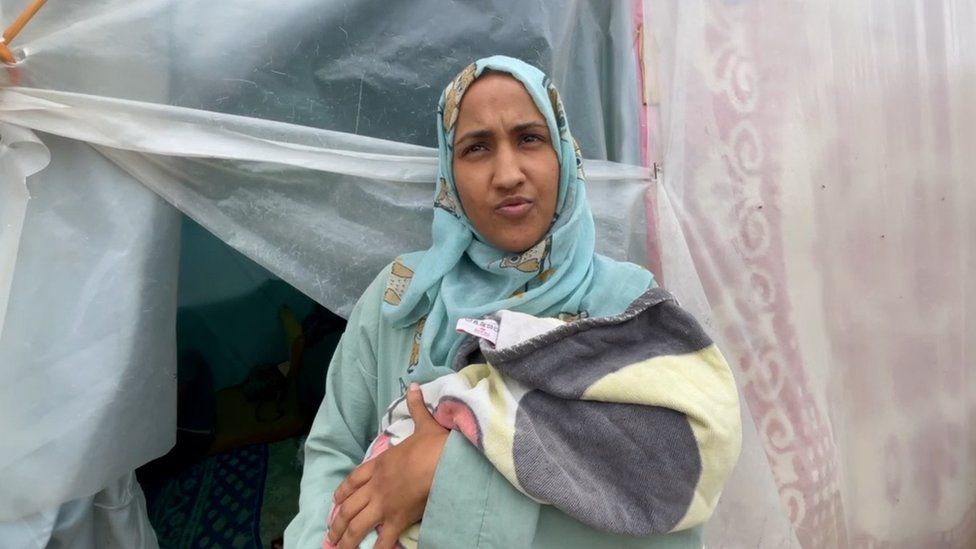-

-
-
Loading

Loading

Nariman, a young mother in Gaza, is struggling to care for her sick baby daughter. The family is living in cramped conditions in a makeshift tent near Khan Younis. Nariman's husband is also seriously ill, and her young son recently required hospital treatment. Due to financial constraints, Nariman cannot afford to buy medicine for her daughter, who needs medical support to breathe. UN Secretary-General António Guterres has described the situation in Gaza as an "epic humanitarian catastrophe," urging the world not to turn a blind eye. Even if the current pause in hostilities is extended, Israel has made it clear that it will soon resume its military offensive, targeting the remaining capabilities of Hamas. This will further worsen the already dire humanitarian situation, especially in Khan Younis, where thousands have sought refuge from the fighting. The temporary ceasefire over the past six days has allowed organizations like the UN to assess the damage caused by seven weeks of bombing and identify the urgent needs of the population. However, aid agencies are struggling to deliver assistance through the Rafah crossing as winter approaches. The lack of sanitation and overcrowded living conditions increase the risk of infectious diseases such as watery diarrhea. The World Health Organization warns that the living conditions and lack of healthcare in Gaza could cause more deaths from disease than bombings. Currently, over 100,000 people have acute respiratory infections, and 80,000 are suffering from diarrhea, with half of them being children under the age of five. Israel denies the existence of a humanitarian crisis in Gaza and points to the 200 trucks currently allowed into the territory each day during the truce, delivering essential supplies. However, these supplies are quickly consumed by the population. It is estimated that over one million Gazans are now living in temporary shelters after being forced from their homes in other parts of the besieged Palestinian territory. If the bombing resumes, aid will once again become scarce, and thousands of internally displaced people will be forced to seek refuge in areas with even fewer resources.